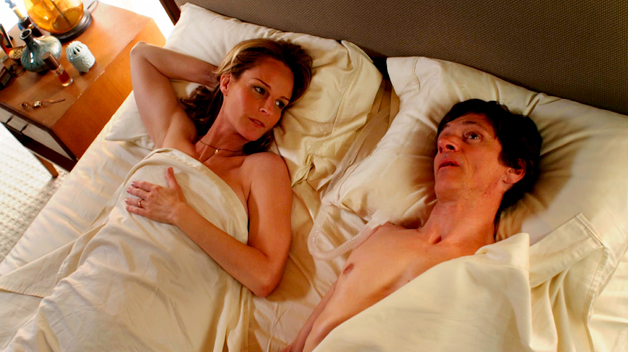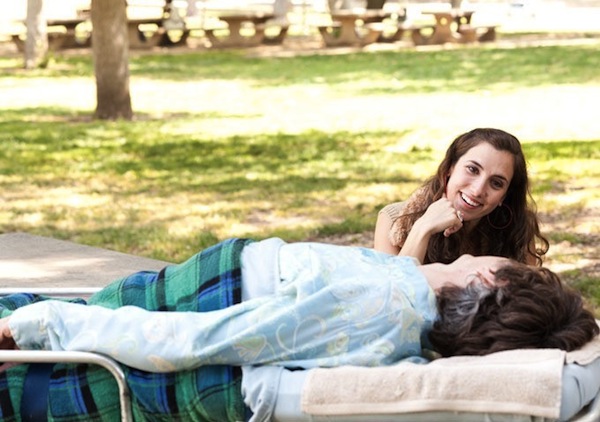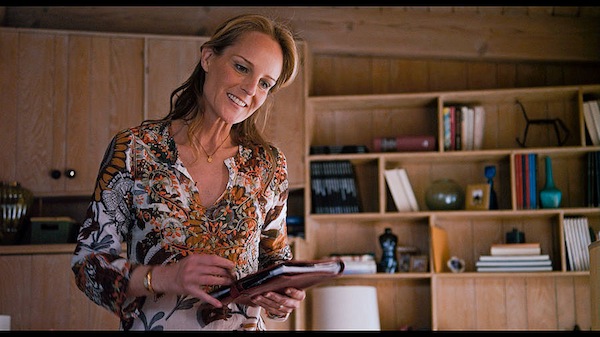The Sessions Review
Disabled people having sex isn’t a topic so much tiptoed around as completely ignored by — well, pretty much everyone. So at the very least, Ben Lewin’s “The Sessions” has to be applauded for shattering taboos. With an outstanding performance from John Hawkes and a script that takes a brazen (i.e. open) approach to sex, “The Sessions” will at least win over hearts if not awards bodies.
Hawkes plays Mark O’Brien, a role that if played by any actor with actual name recognition would be forecast as an Oscar favorite. Independent film connoisseurs know him well, and it is they who will appreciate how completely different Mark is compared to most of Hawkes’ body of work, namely that Mark has a sense of humor. But Hawkes is such a natural that those who don’t know him well won’t find anything extraordinary about his performance. And what a shame.
O’Brien was a real-life writer and poet (and the previous subject of an Oscar-winning documentary short film) who was unable to move anything below the neck due to polio and generally restricted to an iron lung apparatus. He wrote about his experience with a sex surrogate in an actual, published article and died a few years later in 1999. At the age of 36, after falling for one of his caretakers only to be spurned, he determined to lose his virginity.
In the film, O’Brien is put in touch with a sex therapist/surrogate named Cheryl (Helen Hunt) who can legally assist him in a series of no more than six two-hour sessions to achieve his sexual goals. With the blessing of his priest (William H. Macy), O’Brien embarks on this life-changing journey.
Lewin and Hawkes construct a truly believable and lovable character in Mark, someone with a unique sense of humor and world view. At the same time, he’s not just some quirky optimist meant to inspire us into not taking our own lives for granted; he’s complicated and has deep-seated emotional issues.
Having not read O’Brien’s piece, it’s difficult to say how much in the film is result of Lewin expounding upon his own theories about him, but his close connection to Catholicism conveniently adds a moral dimension to the film that adds more perspective to the situation rather than attempt some kind of “balance” to the “debate.” (Personally, O’Brien shouldn’t feel any moral reprehension, but that was who we was.)
It gets sticky as far as truth especially with regards to Hunt’s Cheryl. Hunt’s calm demeanor really makes the session scenes work, but it’s when she starts to develop some kind of emotional connection to Mark that things start to feel more out of the fiction world of, say, the rom-com.
If you’ve watched a single rom-com, you’re well aware that two people engaging in sexual activities are 99 percent likely to fall for each other, regardless of what they say or do, but you’d expect something different from “The Sessions.” It doesn’t quite go there, but it flirts with that line more than it should considering Cheryl does this for a living and you’d expect she could keep things professional or she wouldn’t be doing it.
Other than Hunt’s wickedly distracting attempt at a Boston accent, it’s a joy to see the Oscar winner on screen again, or at least in a relevant film. Cheryl’s a terrific and unique role that requires a brave actress, which Hunt clearly is.
Lewin does his best work with the intimacy of the subject matter. The approach he takes to sex strips it of all its Hollywood armor, so to speak. He doesn’t over-romanticize it or downplay it or tiptoe around it. If he did, the film would probably not work, but viewers who have any degree of sexual experience should identify with the raw and open approach as far a language and even nudity.
Where he struggles slightly, however, is in creating a viewing guide to his own movie as the movie is going on. The film opens with a lot of voice-over narration from Mark, which feels appropriate and quite welcome given that he’s a writer by trade, but as the sessions pick up, we shift to a more objective, case study perspective of him capped off by countless scenes in which Cheryl speaks into a tape recorder and dissects him psychologically, which in the context of the film, is its subtext. It’s an awfully heavy-handed move that definitely holds the film back from achieving a powerful emotional climax (phrasing regretted, but unavoidable).
Also, for being set in the late ‘80s/early ‘90s, there doesn’t appear to be a period feel to the movie at all despite a lack of computer technology, which calls into question Lewin’s eye for detail. It’s a small gripe, but considering the power of the subject matter and the talent on screen, “The Sessions” could have been something truly special with a bit more care and filmmaking talent. Nevertheless, it’s a highly recommendable film that’s a hundred times less dreadful (emotionally speaking) than so many other films about quadriplegics and other physically disabled characters.
4/5 Stars
Written and Directed by Ben Lewin
Starring: John Hawkes, Helen Hunt, William H. Macy, Moon Bloodgood








1 Comment
Good review Steven. Didn’t love this movie like some, but the performances are what really kept this grounded for me and I hope Hunt gets an Oscar nomination for her brave work here. It’s been awhile, since she’s been this good.